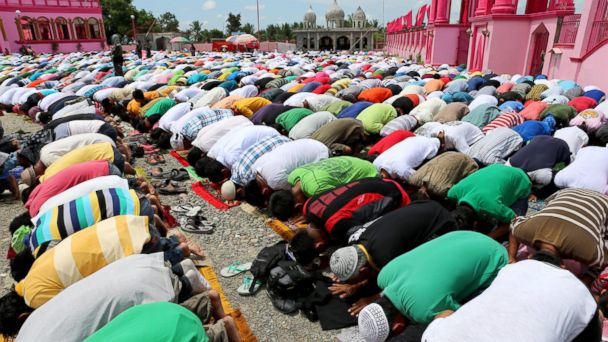5 Things Everyone Should Know About Ramadan

(Photo Credit: Jeoffrey Maitem/Getty Images)
The Muslim observance of Ramadan begins this evening and ends a month later on Monday, July 28. Here are five things to help non-Muslims appreciate why this month is the holiest on the Islamic calendar.
1. What is it?
Ramadan is the actual name of the ninth month on the Islamic calendar when Muslims believe that God began to reveal what would become their main religious text, the Koran, in the year 609 CE (common era). Muslims are taught that it took the subsequent 23 years for Allah to reveal his full message and guide to humanity.
2. Why do the dates change every year?
Like any other month on the Islamic calendar, Ramadan starts with the crescent moon that follows the new moon, meaning that adherents studied the sky Friday night to determine whether the observance of this holy month would begin today or Sunday. So, because they mark a new month when they can actually see the crescent moon, there's no way to know exactly when Ramadan will begin.
3. What do Muslims hope to achieve during Ramadan?
Adherents strive to purge their sins and cleanse their spirit, even to feel closer to the poor. And if the month reinforces discipline and self-control, then Muslims believe they will be that much more equipped to bear whatever the rest of the year might bring.
4. How do they do that?
By casting aside all desires, especially food and water. Fasting is one of the main pillars of Islam, and the requirements are fairly straightforward: no eating or drinking from dawn to sunset every day for a month, whatever the temperature, whatever the daily grind. These obligations are nonnegotiable.
5. But is it safe for everyone to fast?
No, which is why there are exceptions, such as when people are sick, elderly or traveling, or when women are pregnant, breast-feeding or menstruating. The faithful who break the fast in some of these cases are required to make up for the lost days later. Children don't fast until they reach puberty.